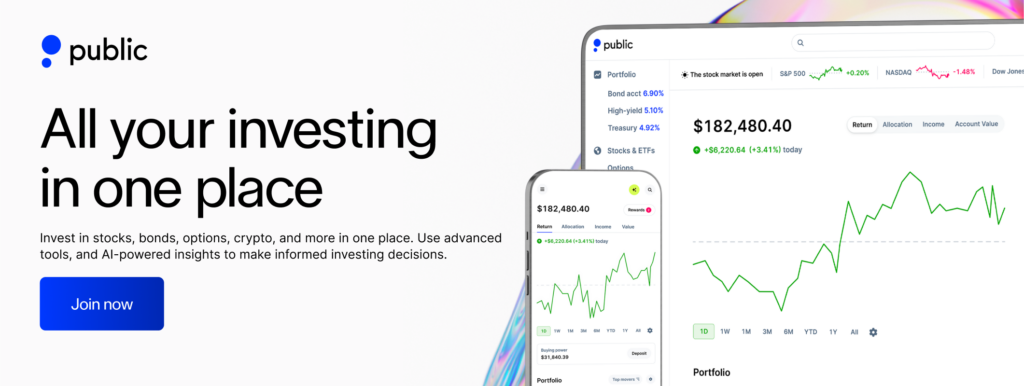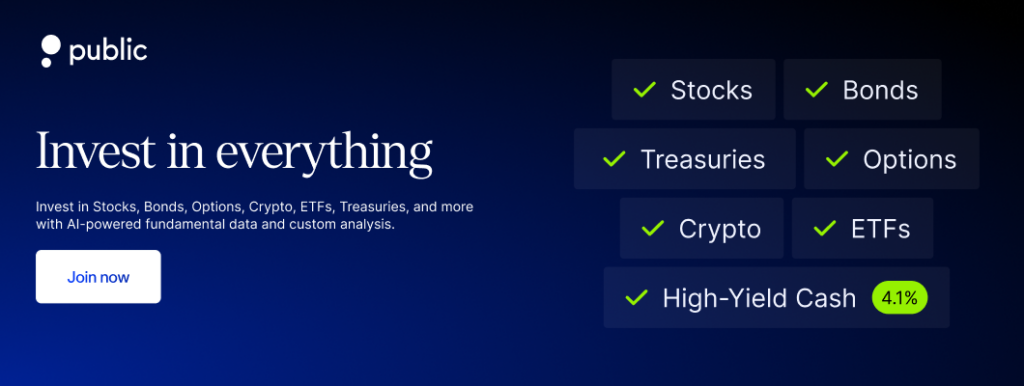Investing can seem complicated, especially when you’re faced with a dizzying array of choices. Index funds, however, offer a simple, cost-effective way to grow your wealth over time. Whether you’re new to investing or looking for a low-maintenance strategy, index funds are worth exploring. In this blog, we’ll break down what index funds are, how they work, their benefits, and how to invest in them.
What is an index fund, and how do it work

Table of contents
Key takeaways
-
Index funds are a type of mutual fund portfolio where your money gets pooled together with other investors in stocks, bonds and more.
-
They’re passively managed, which makes them more affordable than actively managed alternatives.
-
Index funds follow a particular market index or a specific way to measure the stock market’s ongoing performance.
-
Index funds aim to reflect the state of the market, not beat it. This makes them more predictable than other investment options but less likely to earn big, short-term gains.
What is an index fund?
An index fund is a type of mutual fund or exchange-traded fund (ETF) designed to track the performance of a specific financial market index, such as the S&P 500, Nasdaq Composite, or Dow Jones Industrial Average. Instead of trying to outperform the market, these funds aim to match the returns of the index they follow.
For example, if an index fund tracks the S&P 500, it will invest in the 500 largest publicly traded companies in the U.S., mirroring the index’s composition.
How do index funds work?
Index funds operate on a passive investment strategy. Here’s how they work:
1. Tracking an index:
The fund manager selects an index to replicate. For example, the fund may choose the Russell 2000, which represents small-cap stocks.
2. Portfolio construction:
You can expect the fund to invest in all—or a representative sample—of the securities included in the index. If the index has 100 companies, the fund will aim to hold those same 100 stocks in similar proportions.
3. Performance mirroring:
The value of the index fund may rise or fall in line with the performance of the index it tracks.
4. Low costs:
Since the fund isn’t actively managed (no stock picking or market timing), you may benefit from lower operating expenses compared to actively managed funds.

What are market indexes?
Remember how we said index funds reflect a particular market index? A market index is just a way to measure the performance of the stock market. There are hundreds of different index options available, reflecting various economic sectors and asset classes.
Experts often use the Standard & Poor’s 500 Index (more commonly referred to as the S&P 500) as a benchmark for market indexes. This option creates an index of the 500+ top US companies, which they determine based on level of market capitalization. It’s just an example and far from the only index out there.
What are the pros and cons of index funds?
Pros
- Diversification: With index funds, you may spread your investments across numerous companies and sectors, potentially reducing risk.
- Low fees: You can benefit from lower expense ratios because these funds are passively managed and require fewer resources.
- Predictable growth: They mirror market performance, offering steady, long-term returns.
- Accessibility: You may find them easy to understand and invest in, especially if you’re new to investing.
- Tax efficiency: With less frequent buying and selling, you can minimize taxable events, which may help with overall tax efficiency.
Cons
- Limited upside: You may not see returns that outperform the market since the goal of these funds is to match market performance.
- Inflexibility: Investors can’t tailor the fund’s holdings to exclude specific stocks.
- Market risk: Index funds are exposed to overall market downturns.

Understanding the 4 types of Index funds
1. Stock index funds
These funds track stock market indexes, such as the S&P 500 or Russell 2000. You may use these to gain exposure to a wide range of companies.
2. Bond index funds
Bond index funds track bond markets, such as U.S. Treasury bonds or corporate bonds. These funds may provide stability and income through regular interest payments.
3. Sector-specific index funds
You can invest in funds that focus on specific industries, such as technology, healthcare, or energy, depending on your interests or goals.
4. International index funds
These funds track indexes outside your home country, offering exposure to global markets. You may use these to diversify geographically.
Are index funds right for you?
If you’re looking for an easy, low-cost way to build a diversified portfolio, index funds may be worth considering. They can offer a stable, predictable path to long-term growth without the need for active management. However, it’s important to assess your financial goals, risk tolerance, and investment timeline before making any decisions.
What to consider when investing in an index fund?
When deciding which index fund to invest in, there are a few things worth considering:
- Figure out your goals for investing. Do you want to keep your money liquid or invest it for the long term? Your answer to this question could help you determine whether or not an index fund is right for you at this time.
- What’s your budget for maintenance fees? An index fund manager with higher fees may or may not fit your budget.
- Do you want a price-weighted index (pricier assets get bigger shares in the index, like the Dow Jones Industrial Average) or a market-cap weighted index (companies with higher market capitalizations get bigger shares in the index, like the S&P 500)? There’s also the option of an equal-weighted index, which provides each asset with the same weight, regardless of price or market cap. All of these options affect how much buying and selling goes on in your portfolio.
- Choose your risk tolerance (low, moderate or aggressive) based on your personal preferences. This can change based on how many years you are from your goal, what you’re willing to throw in and more.
- Not all index funds are the same. There are actually various types (including broad market, socially responsible, equity and more), so consider the one that suits your personality best.

Large index funds by sector
Choosing which index fund to invest in is a personal choice. You don’t have to choose by sector, but it’s a common tactic for industry diversification. For your reference, here are some of the most prominent index funds by sector, just to get you started with browsing:
Commonly traded funds in technology:
- Fidelity Select Technology (FSPTX) – This portfolio is made up of at least 90% technology stocks.
- Guggenheim S&P 500 Equal Weight Technology ETF (RYT) – This is an equal-weighted index of S&P 500 technology companies.
- SPDR S&P Software & Services ETF (SXW) – This is an equal-weighted index of software & services companies, as defined by the Global Industry Classification Standard (GICS).
Commonly traded funds in health:
- Fidelity MSCI Health Care Index ETF (FHLC) – This market-cap-weighted index tracks US healthcare stocks across the board.
- T. Rowe Price Health Sciences Fund (PRHSX) – This health sciences fund may be restricted for preferred investors.
- Vanguard Health Care Fund (VGHXC) – This health-oriented Vanguard fund has a minimum investment of $3,000.
Commonly traded funds in energy:
- Vanguard Energy Index Fund (VENAX) – This fund is low cost and includes energy companies in the realm of oil and natural gas.
- Calvert Global Energy Solutions Fund (CGAEX) – The primary concentration is sustainable energy solutions.
- Guggenheim Solar ETF (TAN) – This index watches solar energy businesses specifically.
Commonly traded funds for socially responsible investing (SRI):
- Parnassus Endeavor Fund (PARWX) – A more modern approach to investing, SRI offers a justice-forward approach to wealth building. PARWX promotes workplace positivity and avoids anything related to fossil fuels.
- Vanguard FTSE Social Index (VFTSX) – This fund avoids companies related to alcohol, tobacco and more while promoting eco-friendly, socially just investments.
- PowerShares Water Resources Portfolio (PHO) – PHO is an index focused on conserving and purifying water.
Commonly traded funds in consumer cyclicals:
- Vanguard Consumer Discretionary Index (VCDAX) – For leisure products and services, it’s one of the most well-known in the sector (they also have a Consumer Staples Index (VCSAX) for those seeking a less-risky route).
- SSgA Active Trust – Communication Services Select Sector SPDR Fund (XLC) – XLC covers telecommunication, media and entertainment in particular.
- Fidelity Select Leisure Portfolio (FDLSX) – Think of companies centered around the leisure industry (including the goods and services that go along with it).
These sectors aren’t the only ones available for investing in industry-specific index funds, but they give you an idea of what to look out for.
The bottom line
Index funds offer a simple and effective way to build a diversified portfolio that mirrors the performance of major market indexes. By investing in index funds, you can enjoy lower fees, reduced risks, and a hands-off approach to long-term wealth creation.
Public.com makes it easy to explore index funds and other investment asset classes with powerful tools, real-time insights, and an intuitive platform designed for investors at every stage. Open an account within just two minutes and start your investing journey today.
